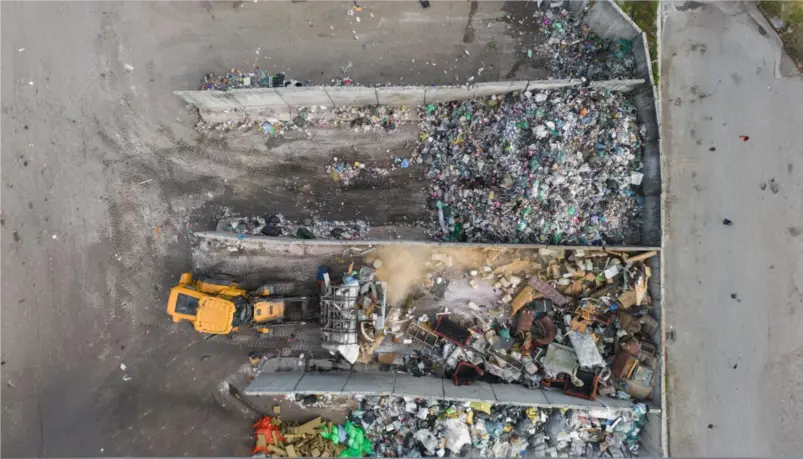Waste management is a crucial part of our municipality’s infrastructure, but its significance extends far beyond just waste collection. A well-functioning waste management system promotes environmental protection, sustainable development, and the circular economy while also playing an essential role in ensuring the smooth daily lives and well-being of residents. Responsible waste management ensures that waste is processed and recycled efficiently while continuously reducing the amount of waste sent to landfills. At the same time, it provides every resident with an opportunity to contribute to environmental protection through their daily choices.
Efficient Waste Management as Part of Everyday Life
The role of municipal waste management is to provide residents with clear and easily accessible services that enable them to sort and dispose of waste responsibly. Waste sorting is a vital part of the circular economy, and the municipality must ensure that there are enough recycling points and waste collection services to make recycling household waste easy. This means ensuring that collection points for biowaste, plastics, paper, metal, and glass are conveniently located and clearly marked.
A well-functioning waste management system makes recycling effortless, encouraging residents to make environmentally friendly choices. We must also ensure that waste management systems remain up to date and efficient to meet the needs of residents now and in the future.
Circular Economy and Waste Reduction
The circular economy is the future economic model in which waste is seen as raw material and a resource rather than landfill waste. Municipalities play a crucial role in promoting the circular economy and reducing waste generation. The goal is to move away from a throwaway culture toward more sustainable and eco-friendly solutions.
To reduce waste, awareness and education are needed to help residents understand how they can minimize waste generation and make better use of recycling. Informing the public about ways to reduce food waste, reuse materials, and repair products can encourage more sustainable choices in daily life. We must also support local businesses and organizations that promote the circular economy and provide residents with opportunities for reuse and recycling.
Utilizing Waste for Energy and Innovative Solutions
Municipal waste management should continuously seek new ways to process waste efficiently and sustainably. Waste-to-energy conversion is one method of reducing landfill waste while simultaneously producing energy for municipal needs. This can be a significant step toward sustainable and low-emission energy production.
New technologies and innovations can also provide solutions for improving waste management. Smart waste management systems, such as monitoring waste bin fill levels and optimizing collection routes, can make waste collection more efficient while reducing emissions. We should take advantage of these technologies to enhance waste management and continually develop new ways to improve recycling and waste processing.
Responsible Waste Management as Part of Environmental Protection
Responsible waste management plays a crucial role in environmental protection and combating climate change. When waste is efficiently recycled and landfill waste is minimized, we conserve natural resources and reduce greenhouse gas emissions. Environmental responsibility is not just the task of municipalities or businesses—it is something every resident can contribute to.
Municipal waste management must also be an open and participatory process in which residents can provide feedback and engage in discussions about its development. Collaboration with different stakeholders, such as recycling centers, organizations, and businesses, is essential to making waste management more environmentally friendly and efficient.
The Future of Waste Management in Our Municipality
Developing waste management and reducing its environmental impact are key elements of municipal environmental policy. I want to ensure that waste management operates efficiently and that residents have all the necessary tools and information to support recycling and sustainable waste management. The future of waste management will be even more eco-friendly, smarter, and more responsible—and it starts with small actions from every resident.


